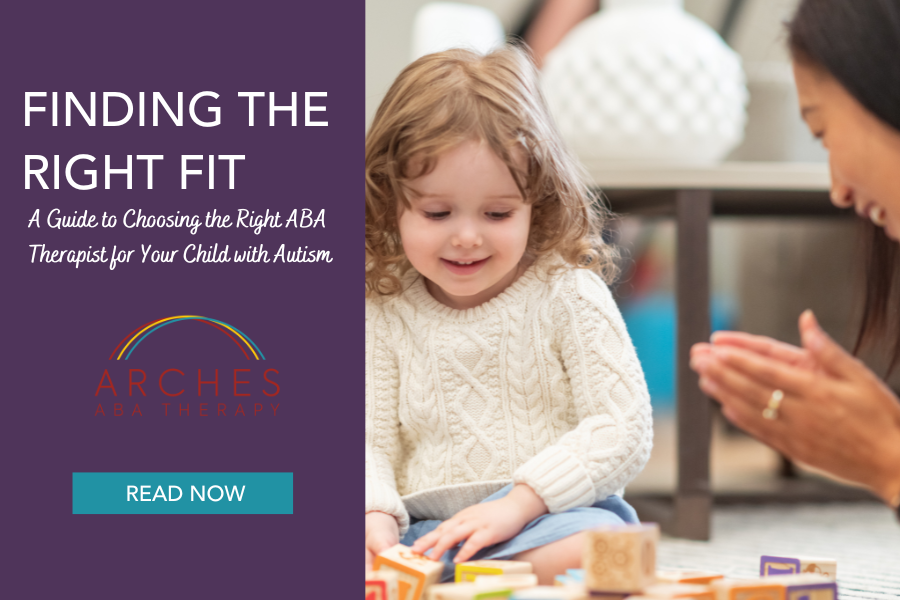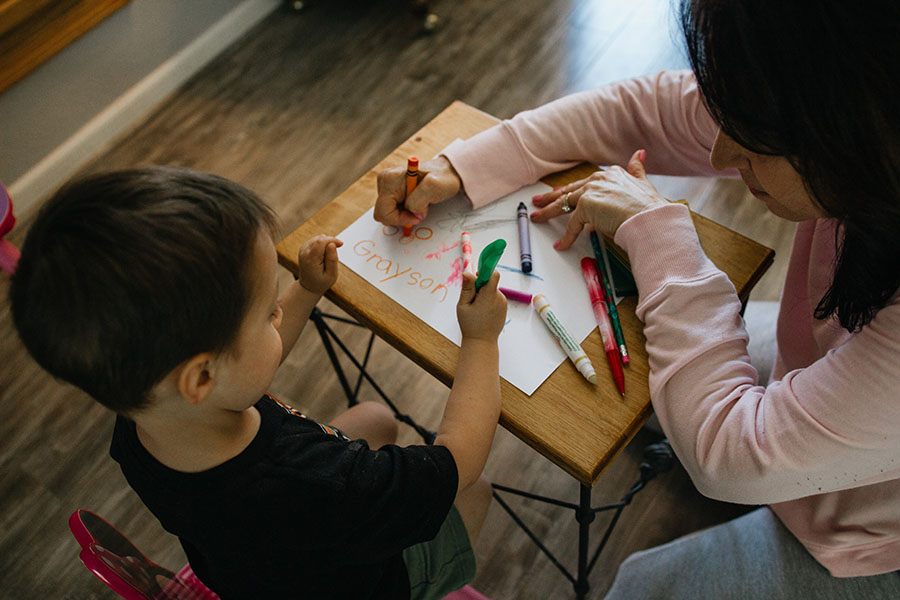Your child may have recently been diagnosed with autism spectrum disorder. It can be a lot to take in and finding the right resources to help your child flourish can be a bit overwhelming and scary. Many children with autism attend Applied Behavior Analysis (ABA) therapy which helps individuals with ASD develop social skills, communication skills, and adaptive behaviors, such as self-care and problem-solving.
After searching the internet, you may be tempted to jump right into therapy with any available ABA therapist, but it is important to realize that not all clinics and therapists are alike. Finding a good fit for you and your child is essential to helping your child succeed in therapy. So, to help you along the way, we created this list of tips and things to look for in an ABA therapist.
The first and foremost thing necessary in a good ABA therapist is the appropriate certifications. Ensure that your therapist is a Board Certified Behavior Analyst (BCBA) or a certified RBT (Registered Behavior Technician) under the direct supervision of a BCBA.
Apart from educational qualifications, we think there are specific characteristics that make a good therapist. Some of these characteristics are:
- A genuine passion for working with children and a sense of excitement and seriousness about their profession.
- A positive acceptance of feedback and constructive criticism by the parents and caregivers. A good therapist intends to improve their own skills by being open to learning and growing.
- Open communication about ABA treatment. Your therapist should be able to effectively and efficiently communicate the progress of the child and any barriers in the process.
- A good therapist must be punctual, consistent, and serious about their work.
- A good BCBA doesn’t just treat the child. They include the entire family in the process since the environment plays a vital role in the effectiveness of this therapy.
- It’s important to find a therapist near you and available in their clinic.
Finding a good ABA therapist is essential to your child’s progress. It is important to note that some therapists might be good but not a fit for your child. Ensure you keep your child’s comfort level with the therapist in mind during the initial consultation and assessment.
Things you should ask your child’s therapist
Every clinic has a different approach to therapy. First, you will want to inquire about your therapist’s strategy to help your child. Ask about how they prioritize goals and how they promote independence with academic and daily tasks. You can also ask about the techniques they will deploy for problematic behaviors such as aggression, severe tantrums, or self-injury. What is their plan to decrease them? What are the assessment methods they will use? How will they keep you in the loop and reassess therapy goals?
In addition, you need a clear vision of what therapy will look like daily, the techniques to be implemented, and how it can be practiced at home.
It is also helpful to understand who will interact with your child and whether you can participate as an observer in the therapy sessions. These are just a few of the questions that should be asked.
A Parent/Caregiver’s participation is essential to ensure that your child receives the best service possible.
It might be helpful to make a list of questions or concerns before the initial consultation to ensure that you have all the answers you need to comfortably make a decision.

Therapist-Parent Relationship
Parents and caregivers play a crucial role in ABA therapy for children. Your child’s therapist must have an open and honest relationship with you. Mutual trust and respect are needed to truly serve your child’s best interest. Here are some things you can do to support your child and therapy:
- Provide insights: Parents know their children the best. Therapists thus need to engage and get feedback from parents to create the best strategy. They can contribute by supplying the therapist with critical information about their child’s behaviors, environments, and needs.
- Being an active participant: A good BCBA will provide the family of the diagnosed child with strategies to be applied at home. Make sure you follow these strategies and do it as consistently as possible to get better results in the therapy process. Participating in the therapy process helps parents and caregivers adapt skills to help manage tricky situations with their children in various settings in and outside the home.
- Moral support for the child: Children need a strong support system, and children with autism need it even more. Parents can be a significant support system for their child. They play an essential role in the therapy process by motivating their child to keep going and trying.
When parents and therapists come together, they create the dream support team to encourage communication and foster independence.
Conclusion
Choosing a good therapist is essential. A good therapist knows how to communicate with the parents of the child. The parents should be able to trust their child’s therapist and should be able to share their concerns with them. But most important, the child should feel comfortable being alone with the therapist. This will help them interact with people outside their home setting and make them more independent.
Arches ABA is located in Covington, Louisiana, where they provide customized ABA services, training, and support for children ages 2-6 with autism and their families.
Photo by Gabe Pierce on Unsplash
Photo by fizkes on Adobe Stock



